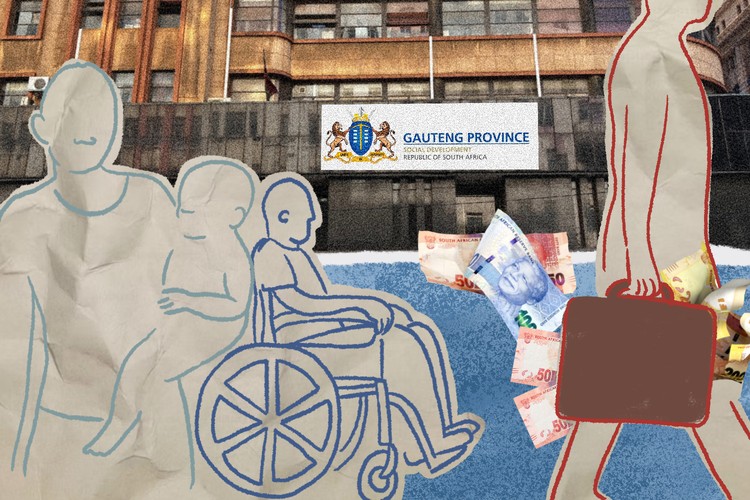Chaotic start to Gauteng Social Development Department’s 2026 funding cycle
Gauteng DSD abandons new funding applications platform
The Gauteng Department of Social Development has R2-billion to distribute to non-profit organisations in 2026/27. Illustration: Lisa Nelson
- The Gauteng Department of Social Development has reverted to accepting email applications from non-profit organisations after its new funding platform flopped.
- The platform has been problematic since its launch, with organisations unable to log in or save their applications.
- Now, two weeks before the deadline, the department has sent organisations a new application form to use.
With two weeks to go before the Gauteng Department of Social Development’s deadline for organisations to apply for funding, the department has abandoned its new funding platform.
The platform, called Grantor, was launched less than two months ago, on 10 August. It was intended to make the funding process easier.
The department has a budget of R2-billion for 2026/27 to distribute to hundreds of organisations that provide essential care services to the province’s most vulnerable residents.
Representatives of organisations underwent a mandatory five-day training workshop in August to learn how to use the system. But issues started to appear from day one.
The organisations were told that they would have to fill in the forms in one sitting, because the applications can’t be saved, one director told GroundUp. The director of another organisation said that it was clear the trainers didn’t know what they were doing, and could not answer questions.
The directors asked to remain anonymous so that their chances of being funded are not compromised.
The Gauteng Care Crisis Committee, a voluntary association of non-profit organisations, polled its members and found that by 19 September, 102 organisations had still not received login details for the system.
Those who were able to log in reported major errors, such as being listed under another care service’s name or flagged as “not registered” on the Central Supplier Database, even though they had proof of registration. Users also flagged a word count limit of 43 for questions that required long answers.
The system required NPOs to upload the names of all their beneficiaries to the system. One organisation’s director told GroundUp that this was impossible, because they have 3,000 beneficiaries, many of whom do not have ID documents.
Early in September, all organisations, whether or not they were able to log in, were told to submit a copy of their applications via email as a backup to the system. They were provided with a template, copied from the Grantor system.
Now, 15 days before the deadline for funding applications, organisations have been given a different template to complete. On Tuesday, an email was forwarded to organisations apologising for the issues with the system, explaining that Grantor was “experiencing teething problems”. Those who successfully applied through the Grantor system must now resubmit the paper template, they were told in the email.
Persistent funding issues in Gauteng threaten care services for vulnerable communities, Lisa Vetten, the committee’s chair, told GroundUp. “If you find ways to persistently and constantly exclude NPOs from funding, what you are actually doing in effect is shutting down and denying services to vulnerable people.”
Department spokesperson Motsamai Motlhaolwa had not responded to questions by the time of publication.
Support independent journalism
Donate using Payfast

Don't miss out on the latest news
We respect your privacy, and promise we won't spam you.
© 2025 GroundUp. This article is licensed under a Creative Commons Attribution-NoDerivatives 4.0 International License.
You may republish this article, so long as you credit the authors and GroundUp, and do not change the text. Please include a link back to the original article.
We put an invisible pixel in the article so that we can count traffic to republishers. All analytics tools are solely on our servers. We do not give our logs to any third party. Logs are deleted after two weeks. We do not use any IP address identifying information except to count regional traffic. We are solely interested in counting hits, not tracking users. If you republish, please do not delete the invisible pixel.

